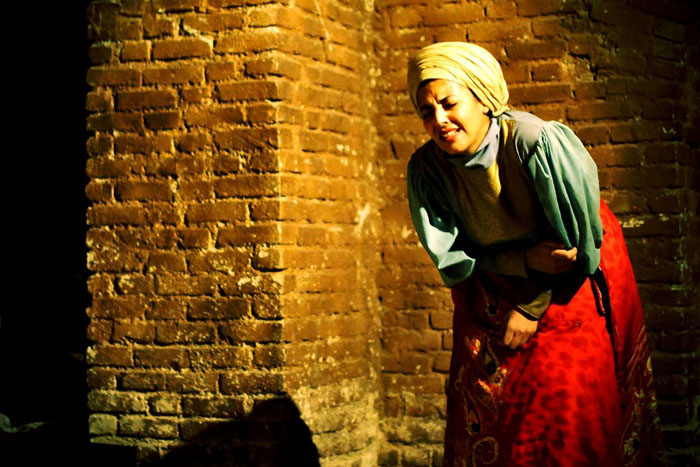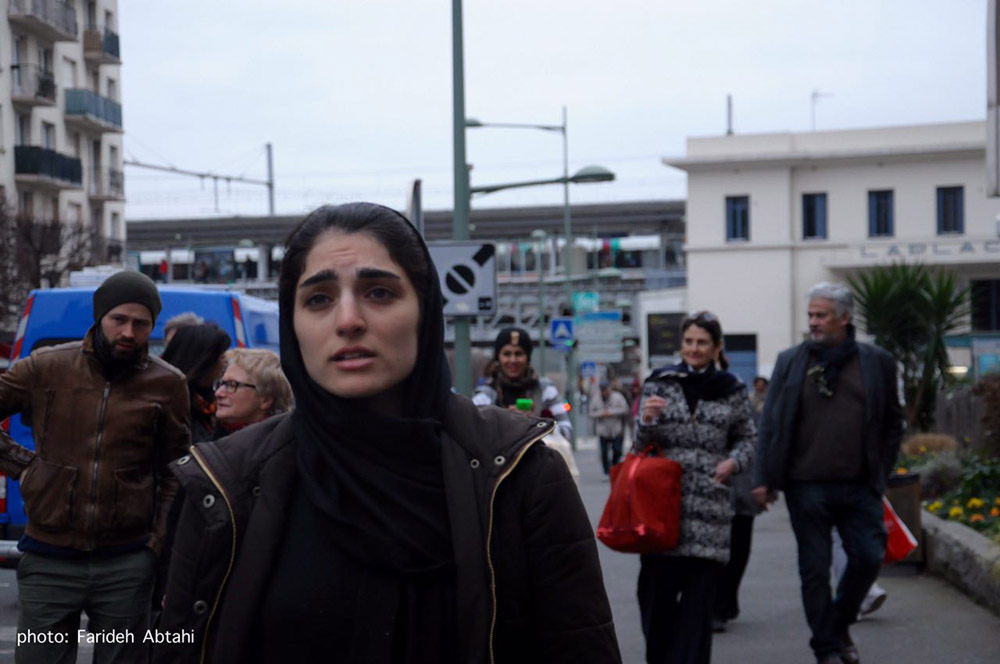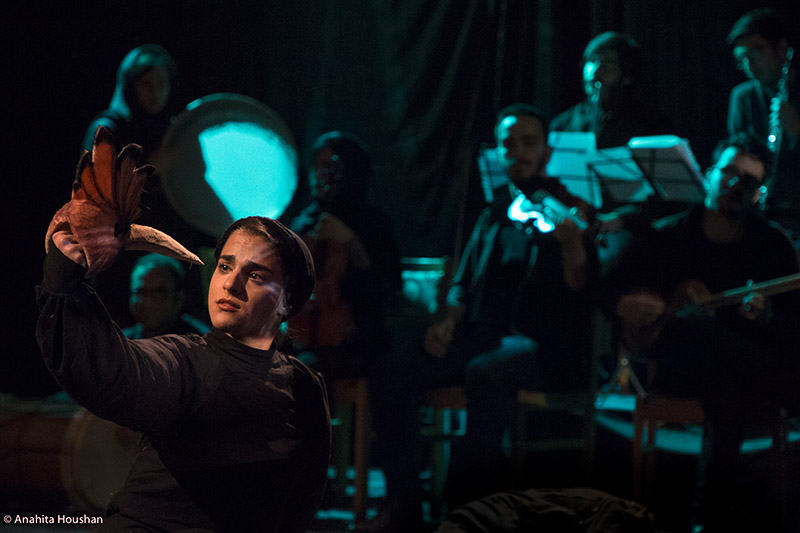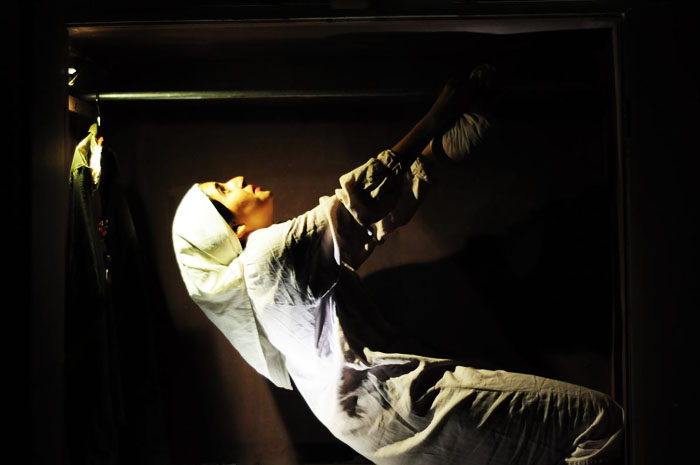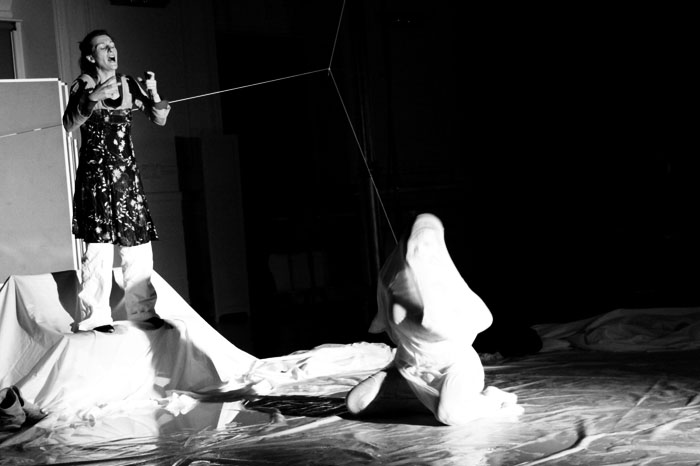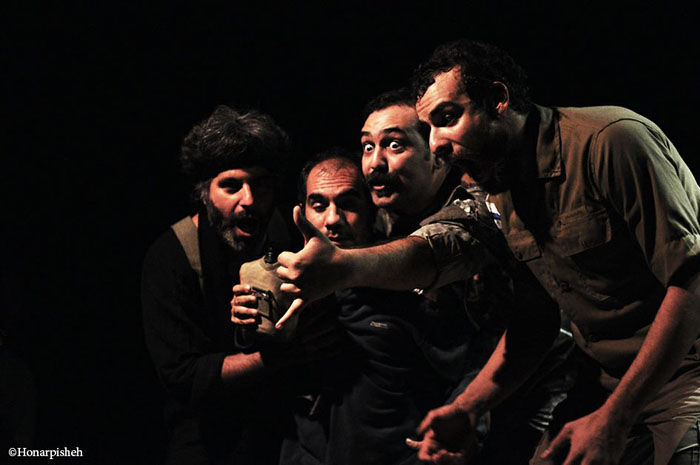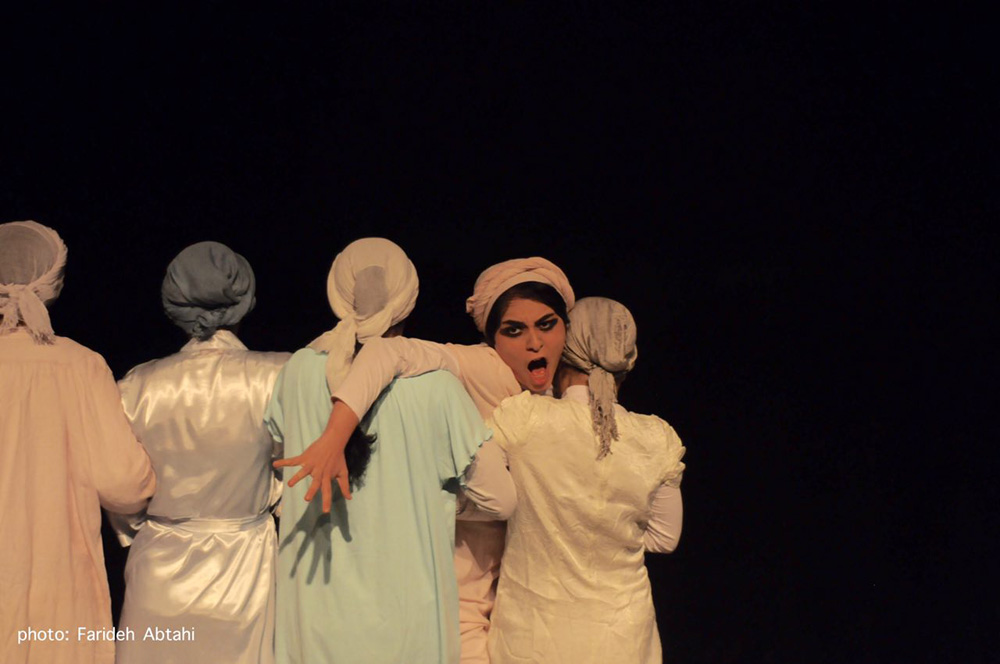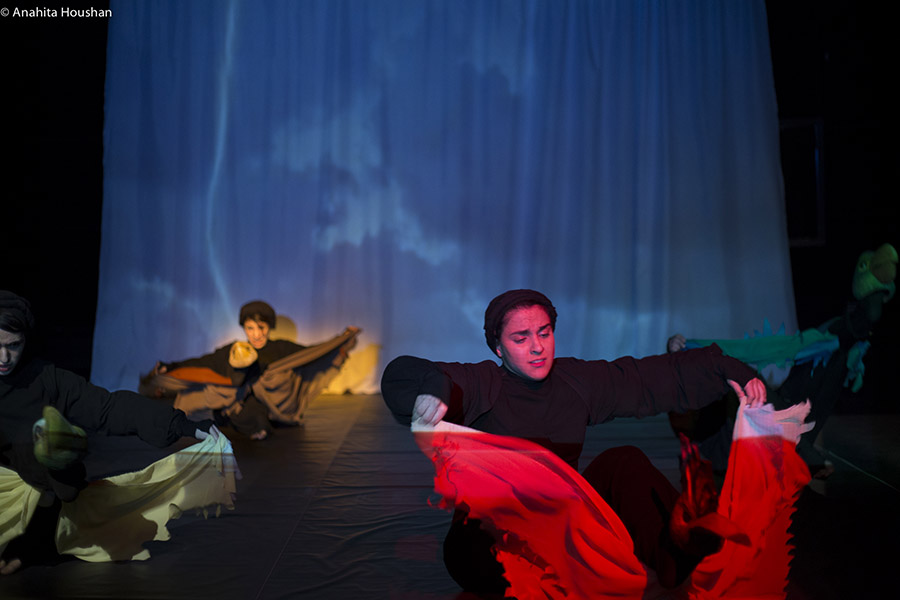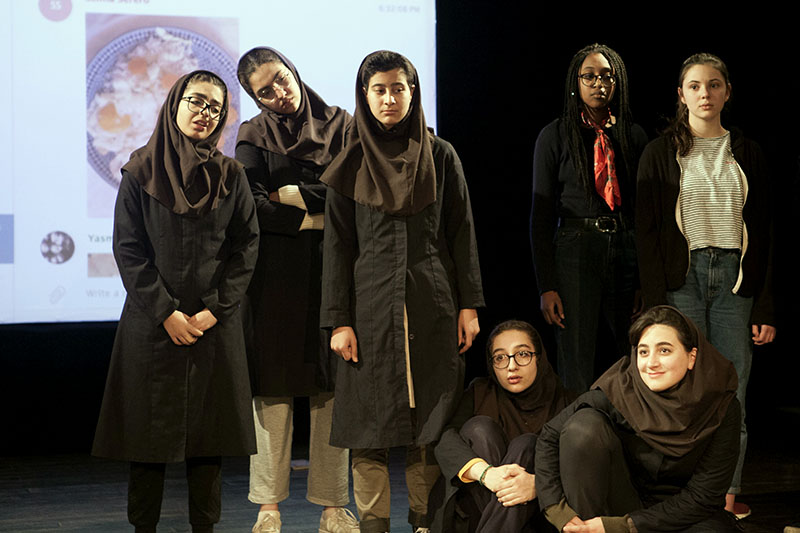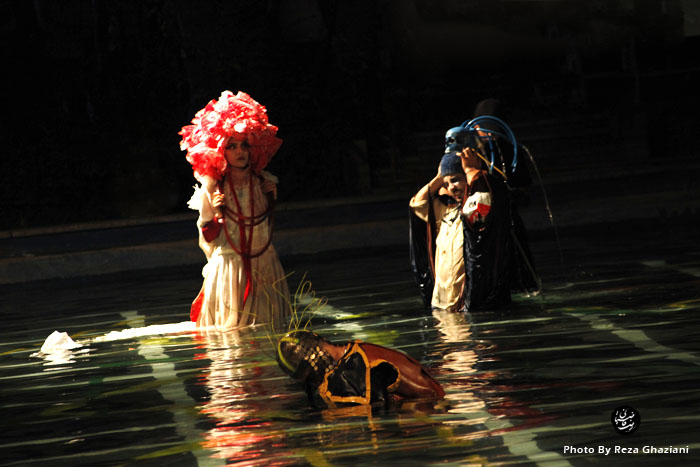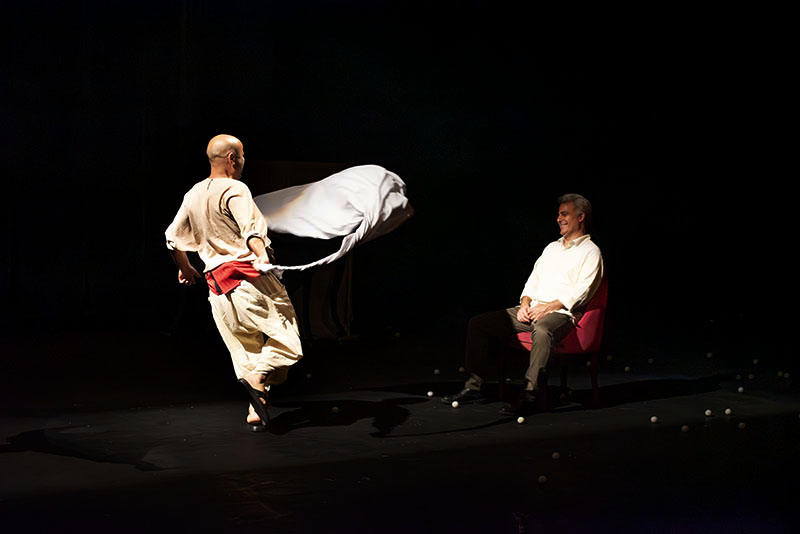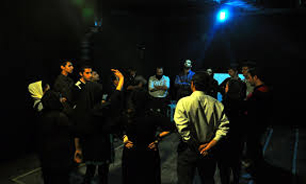
In an interview with the cultural reporter of the journalism club, Neda Shahrokhi, the artistic director of Fanous Art & Culture institute said: This center is negotiating with various schools in France, Germany and Switzerland to hold workshops for theater and movies.
She added that in this center a workshop is held every 4 months in various fields of theater and cinema. At the end of each course, participants will be awarded diploma from the school of contracts which are internationally recognized. This center also tries to promote the fields on which little or no work has been done in the form of workshops with professional instructors.
Shahrokhi also said this institute has held two acting workshops in cooperation with the Point Fixe school in Paris: 1. Poetic acting 2. Looking for the inner clown 3. Neutral mask. Some 18 people participated in each of these workshops and at the end received a degree of completion from that school.
It is required to note that the professor of these courses was Dominique Dupoux Vaudeville from Point Fixe school.
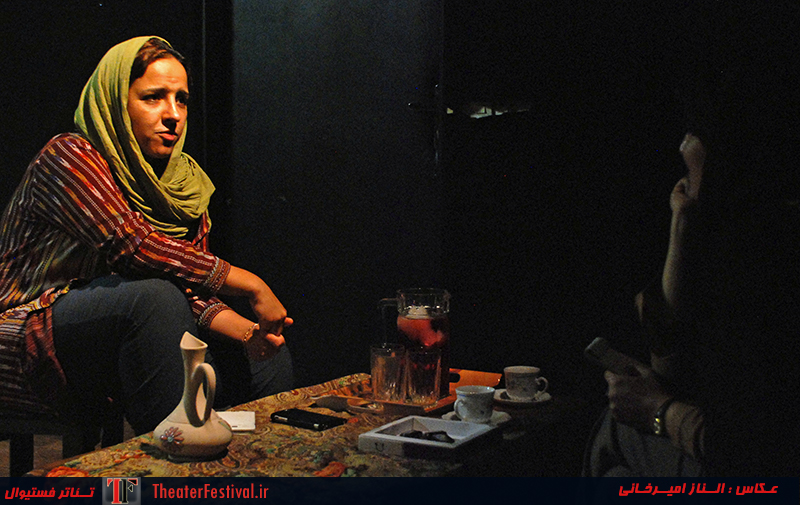
Note: The following interview with Neda Shahrokhi, the director of “Daricheh” (translated as:window) coincides with the time when the play was running in Fanous theatre hall. This was an attractive experience for the Iranian theater audience that respected the fine line between theatre and performance and avoided senseless formalism, which is very current among plays these days. This play invited the audience to see a storytelling, concerned and joyful theatre.
In this interview we talked to her on topics such as performance, formalism, environmental theater and social theater the result of which can be read below:
Part of the interview:
In fact, in the field of social theater, we generally work for the public and his is how theater can extend and spread, but if I just work and you be the only one who understands, how can theater spread? How many specific people see the play about which we think they may and may not understand or may and may not have an interpretation? What happens and is very dangerous is to look intellectually at theater, a look that has never even existed before in the history of theatre. In the beginning of theatre in Greece actors spoke and people ate food, some walked in and some walked out but tragedy was played for them and what is very interesting is that officials bought tickets for the poor so they could come and see theater. Theater was for the common people, perhaps for the lower and the middle classes of people, it is a kind of entertainment, and no one can say he likes to do something people do not get entertained by or understand! With no audience there will be no theater. The result is neither performance nor theater. Because when the audience does not understand, there is no communication, and when there is no understanding, you are not in the field of performing arts.
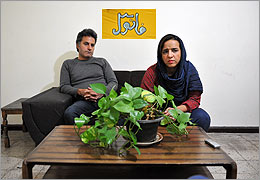
A theater hall just for social theatre/ Shahrokhi and Youneszadeh talk about Fanous
Hoaronline's theater service: Fanous is one of the newly founded private theater halls, located in a relatively old building in an alley near Hafte-Tir Square. It has a black box theater hall with a capacity of 50 people and is equipped with a control room, a makeup room, optical devices room and ventilation. This hall is run under Fanous Art & Culture institute( House) by the artist couple Morteza Youneszadeh and Neda Shahrokhi.
We talked with Neda shahrokhi and Morteza Yooneszdeh who are in charge of this theatre institute to know more about the institute, its characteristics, needs and further purposes.
Talking about the process of founding this theatre hall with Honaronline correspondent, Neda Shahrokhi who is the artistic manager of the complex and a student of theatre PhD studying in France said: Fanous is actually a multipurpose cultural and artistic institute that started working in 2013 and the theatre hall started working with play I directed, "Man's a man" by Bertolt Brecht.
Declaring the capacity, features and facilities of this theater hall she said: Fanous was actually an old house, we repaired its first floor and made a theater hall out of it. What made us turn the place into a theater hall was that it had a good width. This hall has a capacity of 50 spectators and is 6 meters wide, 10 meters long and 7 meters deep. Although such good facilities do not exist in most private halls, we tried to provide standard possibilities for this hall.
Social drama genre and addressing women's issues are priorities of this theater hall
